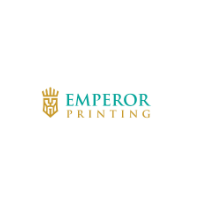How To Choose The Right Fabric For Custom T-Shirt Printing
When it comes to creating standout custom apparel, choosing the right fabric plays a crucial role in ensuring both visual appeal and long-lasting comfort. Whether you're planning to print T Shirt Printing Design for a brand launch, corporate event, or personal project, understanding fabric types can make or break the final product. For those seeking Same Day T Shirt Printing Dubai, knowing which fabric suits your purpose ensures faster processing, better results, and high-quality finishes. Choosing the correct material not only enhances print clarity but also ensures that your designs look vibrant and feel comfortable all day long. Especially with Same Day T Shirt Printing Dubai, there's little time for error—making informed fabric choices even more essential.
Understanding the Role of Fabric in T-Shirt Printing
The fabric type directly influences how well the ink adheres, how the final print looks, and how the shirt feels when worn. Common printing methods such as screen printing, direct-to-garment (DTG), and heat transfer all respond differently to various fabrics. For fast turnaround needs like Same Day T Shirt Printing Dubai, fabrics that work seamlessly with modern printing technologies are highly recommended.
High-quality cotton remains a popular choice for its softness, breathability, and versatility. However, not all cotton is the same. Ringspun cotton, for instance, provides a smoother surface for printing and results in higher-resolution designs. Blended fabrics like cotton-polyester can offer durability and wrinkle resistance but may not absorb ink as effectively as pure cotton.
Cotton vs. Polyester vs. Blended Fabrics
1. 100% Cotton
Ideal for most T Shirt Printing Design, 100% cotton fabrics provide excellent print quality, especially for DTG printing. They are comfortable, eco-friendly, and suitable for sensitive skin. However, they may shrink slightly after washing if not pre-shrunk.
2. Polyester
Best known for its moisture-wicking properties, polyester is commonly used in athletic wear. While not the top choice for traditional printing methods, it works well with sublimation printing. The prints are durable and vibrant but may not achieve the soft feel many consumers prefer.
3. Cotton-Polyester Blends
These combine the best of both worlds—softness of cotton with the durability and wrinkle-resistance of polyester. They are suitable for various printing methods but may sometimes result in less vibrant prints due to the synthetic component.
Fabric Choices for Different Apparel Types
When choosing fabric, consider the type of apparel you're printing on.
T-Shirts: Ring spun or combed cotton is often recommended for premium T Shirt Printing Design. These types give a softer feel and a cleaner print surface.
Cotton Hoodies: For hoodies, heavyweight cotton or cotton-poly blends offer durability and warmth. These materials also hold prints well and are perfect for bold logos or graphic-heavy designs.
Polo T Shirts: Typically made from pique cotton or poly-cotton blends, Polo shirts require a more textured fabric. Choose a fabric that balances structure with comfort and can handle embroidery or screen printing effectively.
Fabric Weight and Fit Considerations
Aside from composition, fabric weight (measured in GSM - grams per square meter) affects the shirt’s feel and function. Lightweight fabrics (around 120–150 GSM) are ideal for hot climates and casual wear, while medium-weight (160–180 GSM) or heavy-weight fabrics (above 200 GSM) are better suited for formal wear or layering.
Fit also matters. Slim-fit T-shirts usually require stretchable blends like cotton-spandex, while classic fits can use standard 100% cotton. Understanding these subtle differences helps in choosing the perfect match for your T Shirt Printing Design needs.
Sustainability and Skin-Friendliness
With increasing demand for eco-conscious fashion, consider organic cotton or recycled blends for your custom shirts. Not only do these materials reduce environmental impact, but they also provide natural breathability and comfort. This becomes particularly relevant when creating T-shirts for prolonged wear—like staff uniforms or merchandise.
If your target users have sensitive skin, fabrics such as organic cotton, bamboo blends, or OEKO-TEX-certified materials are excellent options. These are free from harmful chemicals and reduce the risk of skin irritation.
Durability and Wash Performance
No matter how good your design is, it won't matter if the print fades after a few washes. Fabrics that retain both color and print sharpness post-wash are essential for long-lasting wear. Look for pre-shrunk, colorfast materials that don't pill or lose shape over time.
The fabric’s ability to withstand heat is another factor. This matters especially for Same Day T Shirt Printing Dubai, where rapid turnaround often involves heat-intensive processes. Make sure the material can handle this without compromising quality.
Final Thoughts
Choosing the right fabric for your custom T-shirt project requires balancing several factors—comfort, durability, print compatibility, and appearance. Each material has its own strengths, and selecting the best one depends on the intended use and design requirements. Whether you're printing promotional Cotton Hoodies, stylish Polo T shirts, or everyday wear T-shirts, starting with the right fabric sets the stage for success.
For those looking for high-quality, reliable, and Same Day T Shirt Printing Dubai, Emperorprinting offers expert guidance and fast delivery without compromising on quality. From selecting the ideal fabric to delivering professionally printed apparel, we ensure your vision comes to life—on time and on point.
